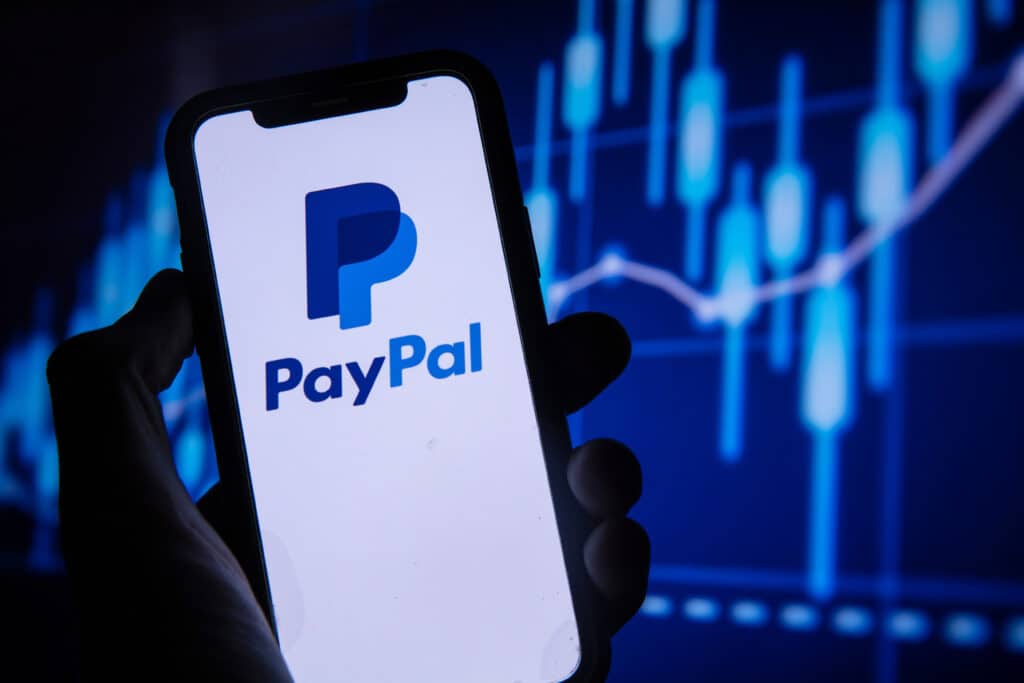
Key Takeaways:
- PayPal introduces a feature for U.S. users (except Hawaii) to send international remittances by converting PayPal USD (PYUSD) stablecoin to U.S. dollars via Xoom, enabling transfers to over 160 countries without Xoom transaction fees.
- The new service allows PYUSD to USD conversions for international transfers without cryptocurrency sale fees, offering multiple receiving options like bank deposits, mobile wallets, and physical pickups, with currency conversion fees applicable for non-USD transactions.
- PayPal’s move comes as part of the expanding stablecoin market, with PYUSD’s issuance nearing $200 million, amidst news of Ripple and Nick van Eck entering the $150 billion stablecoin space with their U.S. dollar-backed offerings.
PayPal has announced a significant update for its users across the United States, excluding Hawaii, enabling them to send international remittances by converting the PayPal USD (PYUSD) stablecoin into U.S. dollars.
This new feature is facilitated through PayPal’s subsidiary, Xoom, which specializes in cross-border payments.
Eligible U.S. customers can now convert PayPal USD to USD to fund transfers on Xoom, PayPal’s cross-border money transfer service. This new option allows eligible U.S. Xoom users to send money to friends and family abroad with no Xoom transaction fees. https://t.co/cFbDHffe9U pic.twitter.com/YHEMU9wwKp
— PayPal (@PayPal) April 4, 2024
Starting from April 4, PayPal’s integration with Xoom allows users to seamlessly transfer funds internationally from PYUSD to over 160 countries worldwide without incurring any Xoom transaction fees.
“By introducing the option to fund cross-border money transfers with USD converted from PYUSD, Xoom now offers an easy and reliable way for U.S. users to send money abroad using PYUSD as a funding source,” PayPal stated.
The conversion process involves changing PYUSD held in the user’s PayPal Cryptocurrency Hub to U.S. dollars without any fees associated with the sale of cryptocurrency.
The Xoom cross-border money transfer service now allows customers to send funds abroad using dollars converted from the PayPal USD stablecoin. https://t.co/CY5idyPjaZ
— Bloomberg Crypto (@crypto) April 4, 2024
The recipients of these funds will receive the amount in their local fiat currency as chosen by the sender.
This service extends various options for receiving funds, including direct deposits into bank accounts, mobile wallet transfers, or pick-ups at designated financial institutions.
It’s important to note that transactions not conducted in U.S. dollars will involve a currency conversion fee.
However, PayPal users residing in Hawaii are exempt from this service due to state regulations on cryptocurrency holdings.
Starting today, US customers of PayPal's @Xoom can now convert the Paxos-issued PYUSD to USD to fund cross-border money transfers. This a major step forward in driving cost-effective and secure mainstream adoption of stablecoins 🚀
— Paxos (@Paxos) April 4, 2024
Learn more here: https://t.co/YCJ8WySc0F
The custody and issuance of PayPal USD are managed by the New York-based Paxos Trust Company.
Despite its recent launch in August, PYUSD’s issuance has reached nearly $200 million, trailing behind the market capitalizations of major stablecoins such as USD Coin and Tether, which stand at $32.9 billion and $110 billion, respectively.
Jose Fernandez da Ponte, the Senior Vice President of PayPal’s Digital Currency Group, emphasized PYUSD’s aim to maintain a stable value to foster user confidence and its utility in commerce and payments.
The Xoom cross-border money transfer service now allows customers to send funds abroad using dollars converted from the PayPal USD stablecoin. https://t.co/ch3q0PkD5X
— Bloomberg Technology (@technology) April 4, 2024
In related news, Ripple has revealed plans to debut its own U.S. dollar-backed stablecoin, joining the competitive $150 billion stablecoin market.
Additionally, Nick van Eck, influenced by his father, Jan van Eck’s legacy in investment management, has successfully secured $12 million in funding for the launch of another U.S. dollar-backed stablecoin.

